Welcome to Foundations, our group piano curriculum for advancing students, age 6+, developing piano skills and musical literacy through engaging topic-based songs, games, and of course the group setting.
An overview of the skills and concepts covered in our Foundations curriculum
Understanding how essential it is to have an overarching plan, we have laid out exactly how we approach piano learning in this skills and concepts overview.
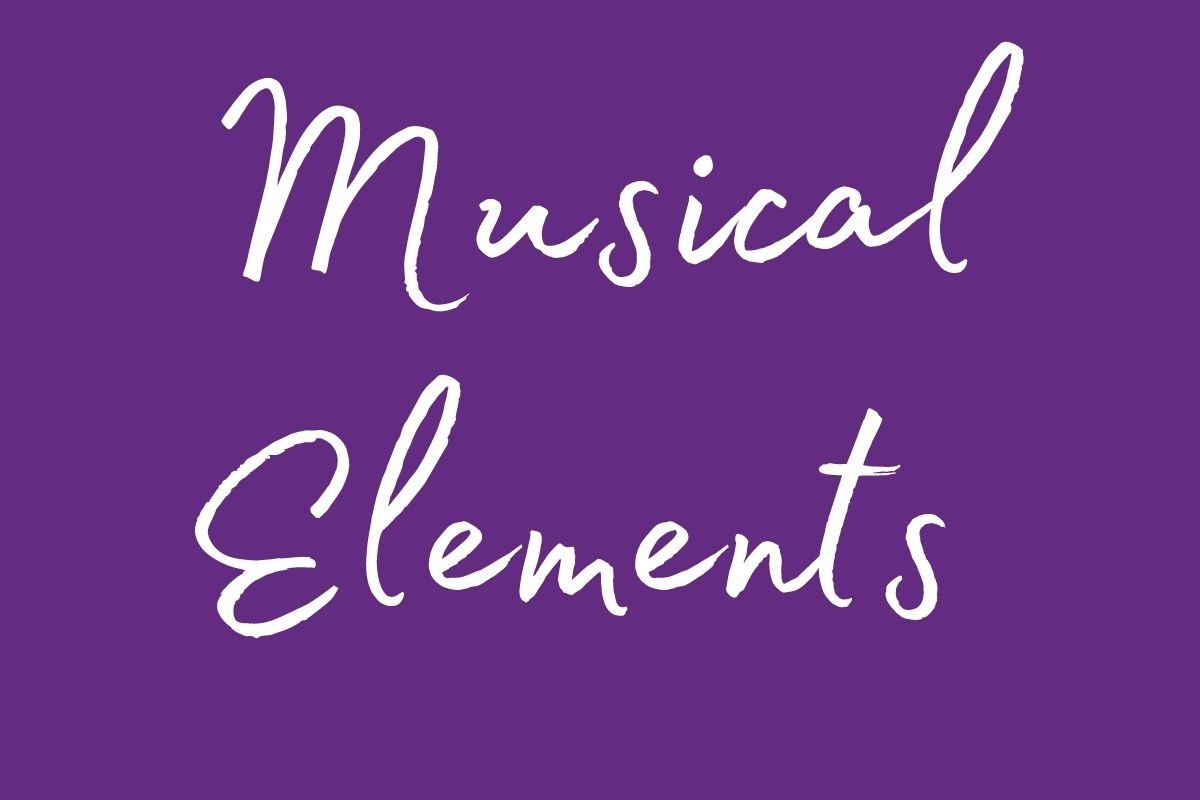
Dynamics: pp, p, f, ff, crescendo, mp, mf
Tempo: + Allegretto, Maestoso
Structure: Question and answer phrasing / call and response, repeat signs
Pitch: Middle C to high A
Melodies: use all intervals

Songs in C major, A minor, G major, F major, E minor
C major scale
Chords I and Vb in G major
Primary chords in C major and G major
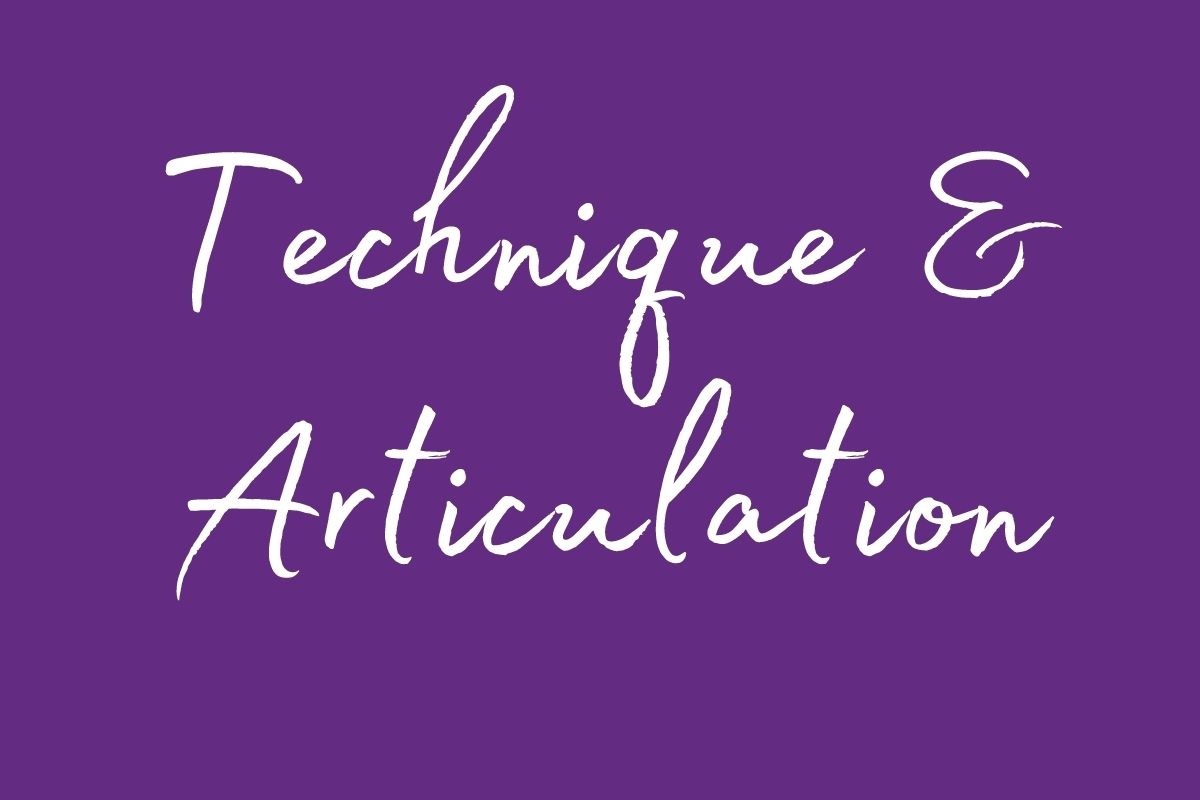
Position shifts
Long, sustained sounds
Continuing work on staccato and legato technique
Left-hand melodies
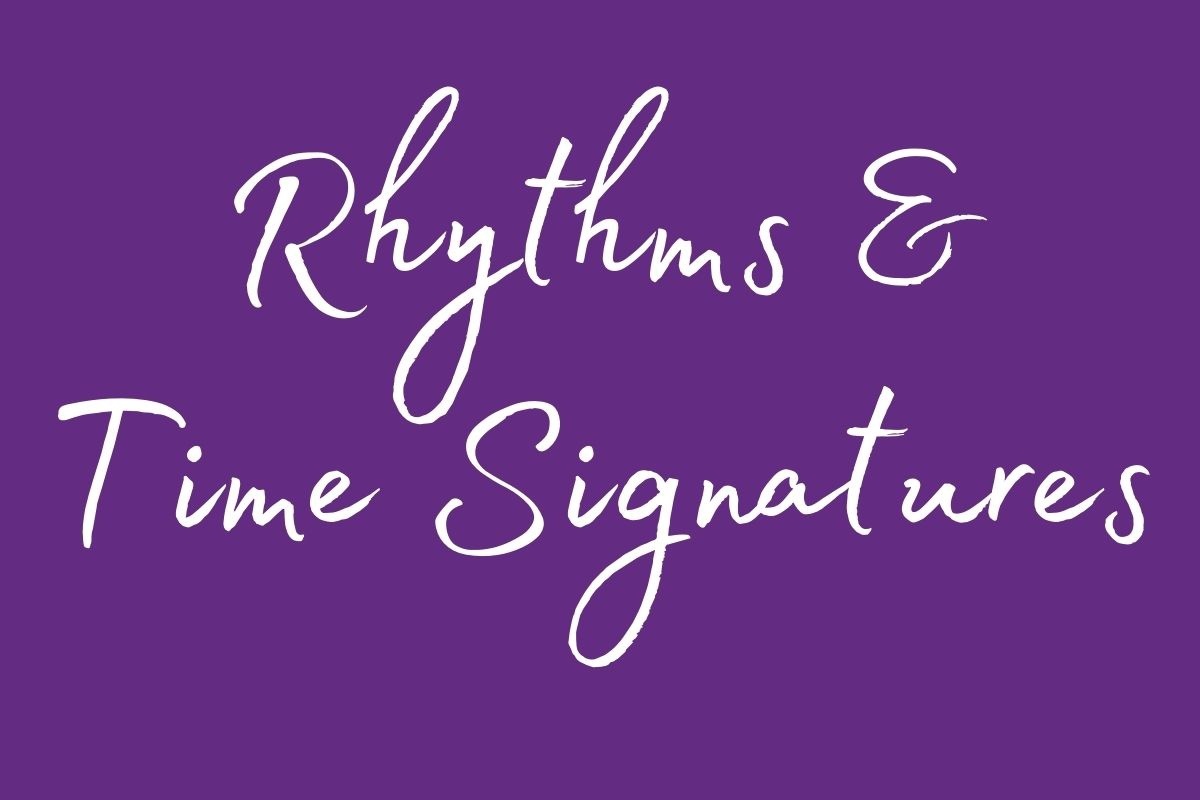
Crotchet/quarter, minim/half, and semibreve/whole rests
Dotted rhythms
Songs in 2/4, 3/4 and 4/4, occasional 6/8
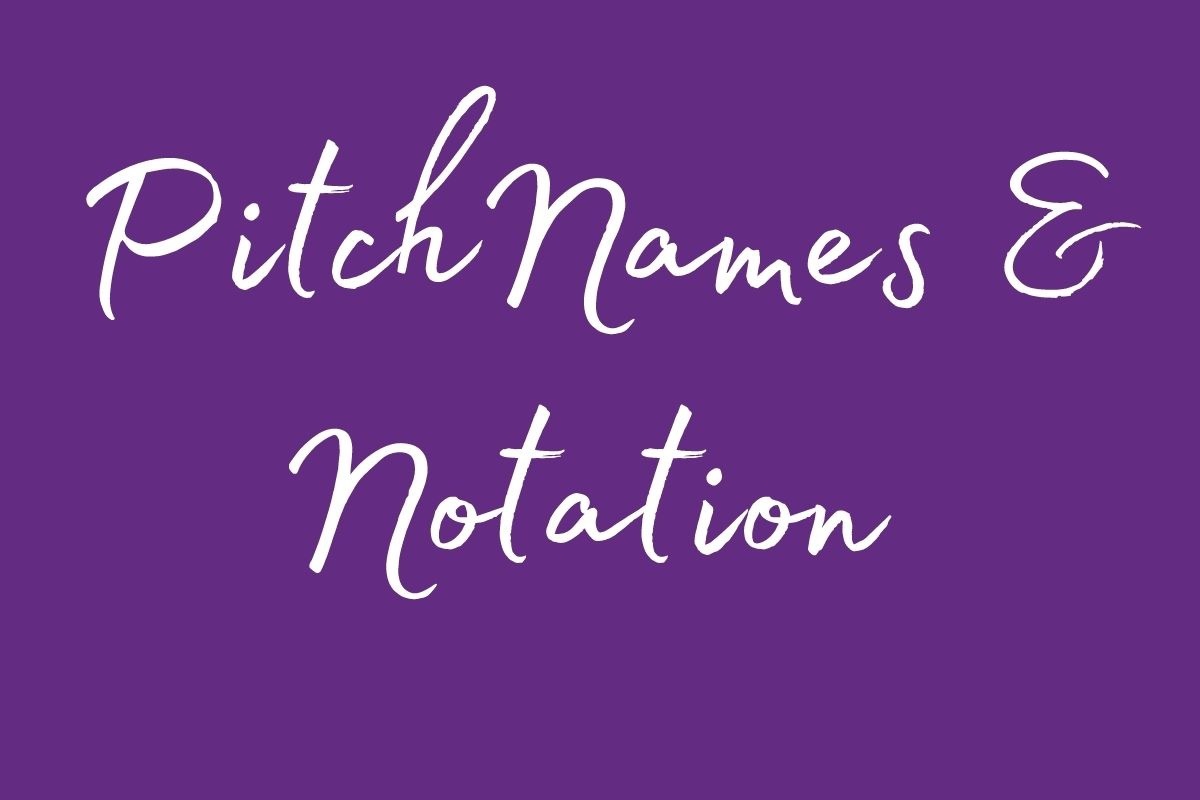
Treble clef notation – middle C to high A
Bass clef notation - Low E to middle C
Stave/staff and concept of space notes and line notes
Mnemonics – FACE, Every Green Bus Drives Fast
Relative reading – sight reading
Melodies that move by step and 3rds, then 4ths/5ths
The Key Difference
Our cyclical curriculum and our system of differentiation are what makes our program different.
Each song has challenge levels so that each child can progress at their own pace.
A cyclical structure makes the curriculum flexible so that new students can join a class any time.
Reading and Musical Literacy
Having developed a love of creative piano playing and its core fundamentals, through our beginner program (Storytellers), our Foundations program is all about reading and musical literacy.
We begin with a focus on the treble clef with Foundations One, and move onto the bass clef with Foundations Two.
Of course, creativity and games continue to be at the centre of how we teach and learn.
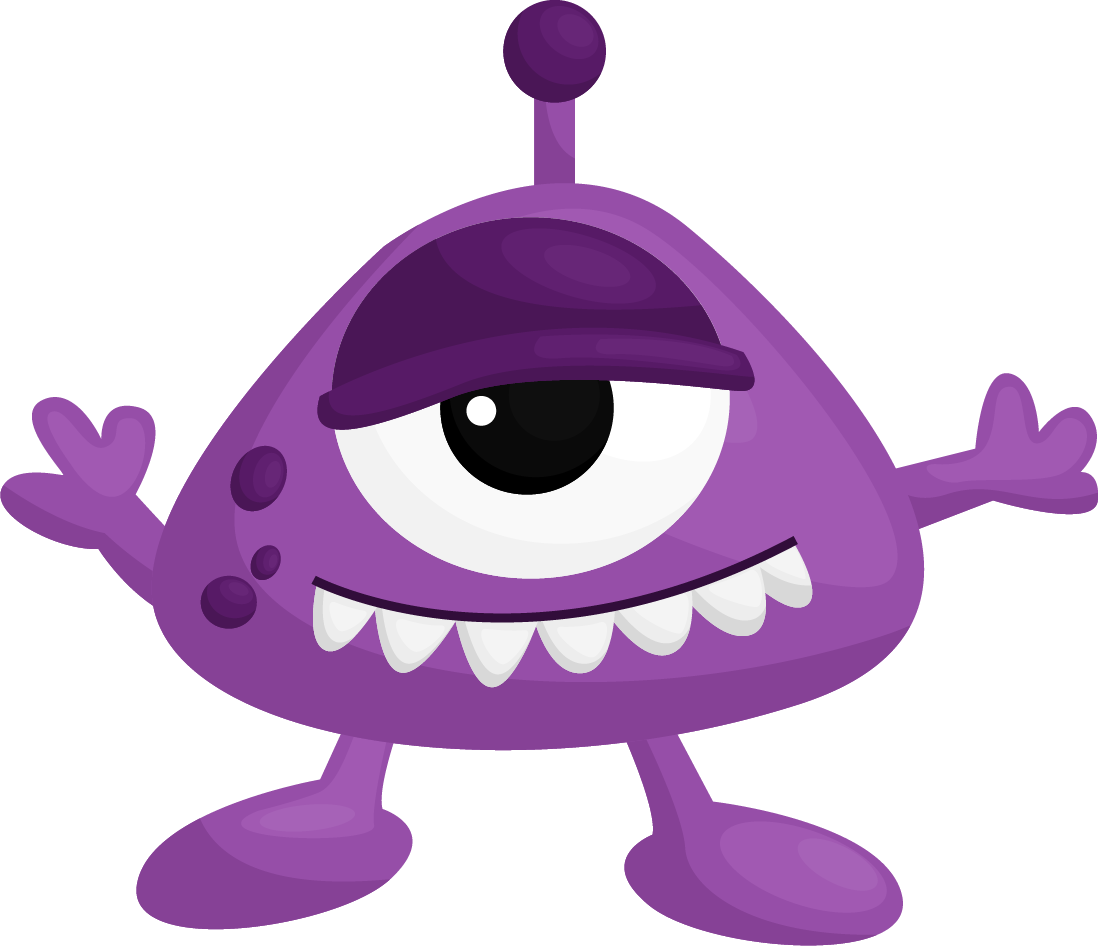
Space
Our songs take us on a journey through space, with "Lift-Off" exploring chromatic scales, "Through the Atmosphere" using crossing hands, "Moon Walk" practising our piano duet skills, and our wonderful "Alien Battle March", an ensemble with three flexible parts. Games focus on melodic and harmonic intervals (Space Invaders), rests (Rest in Space), and enharmonics (Team Flats v Team Sharps). There are also many opportunities, including games, to develop treble clef reading skills, such as our Starry Skies note match game.
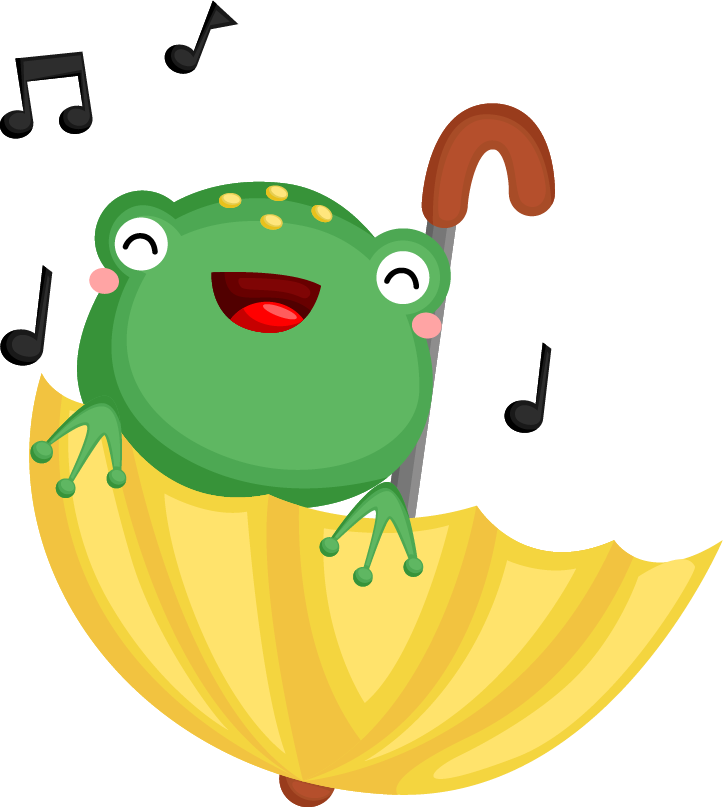
Momentous Melodies
For Momentous Melodies, we have taken some of the most famous songs, such as Happy Birthday, and arranged them for our Foundations students, making sure that each has a specific learning point. Happy Birthday looks at dotted rhythms and upbeats, Ode to Joy looks at stepping and skipping notes, Pachelbel's canon looks at the ostinato, and Mary Had a Little Lamb focuses on primary chords. These are just some of the songs, and their learning points, in this workbook, and there are of course many games and ensemble playing opportunities!
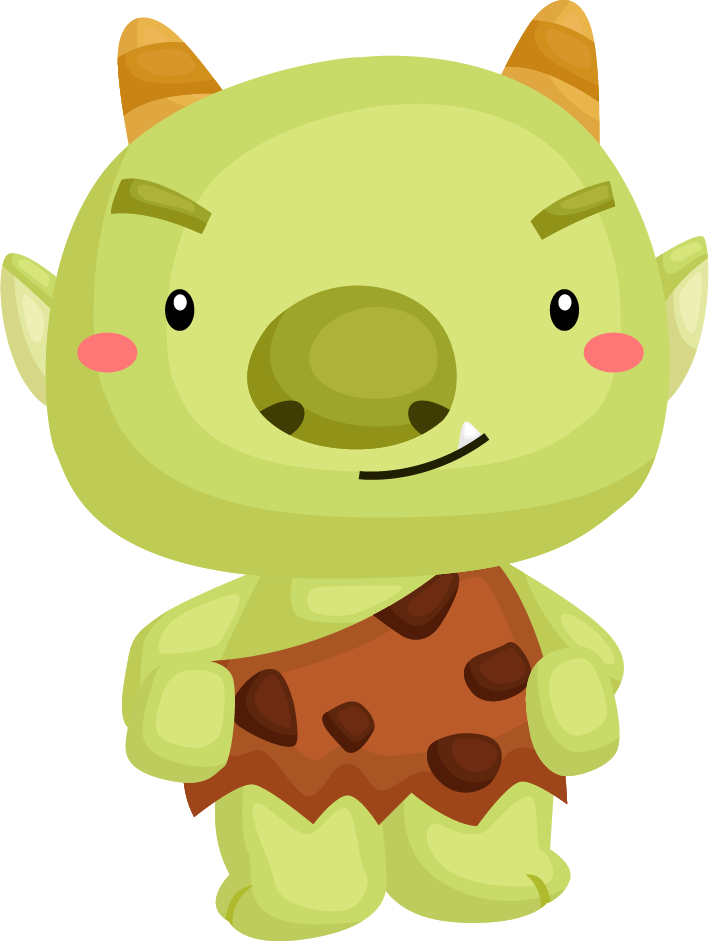
Mythical Creatures
Whether it is the werewolf creeping around, or the unicorn clippety-clopping, our Mythical Creatures songs allow us to further explore how music can represent certain intentions. Articulation, with the technique needed to achieve various types, helps us to illustrate the characters. We also learn about semi-tones, enharmonics, and compound time!
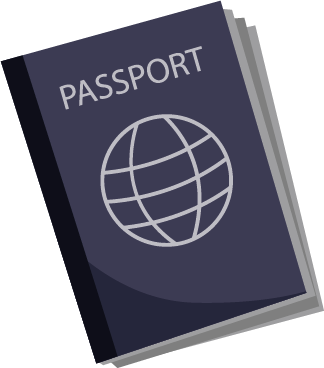
My Passport
Taking a trip around the world, we have a look at features of music from China to Spain and many other countries in between! We learn about new intervals, scotch snaps, crossing over hands and triplets. As an ensemble, we learn to increase in tempo together in "Kalinka" from Russia, and play in a round in "Senua" from Ghana.

Film Music
Film Music is such a great topic and we get to do lots of listening to some of the most wonderful excerpts! Then we play a range of genres such as Pirates and Spies. Through our songs and games, we learn about chromatic scales, tonality, syncopated rhythms and ledger lines. We finish the workbook off with a composition for our own made up superhero!
Note Reading
How students are introduced to note-reading is key to how well they grasp it. We make sure that students are clear on all the initial fundamentals of the piano, such as where the notes are, hand position, and finger numbers, before approaching reading with them. We teach both directional reading and mnemonics, as we find that the mix of the two main approaches gives our students every chance of securing the foundations of reading. We also separate the treble and bass clef, plus of course we play lots of games!
Game on
Learning through games lends itself very well to the group setting! We can play games in order to embed knowledge and concepts, but also to evidence the depth of understanding. All games relate directly to the objectives of the lesson and of the song being learnt.
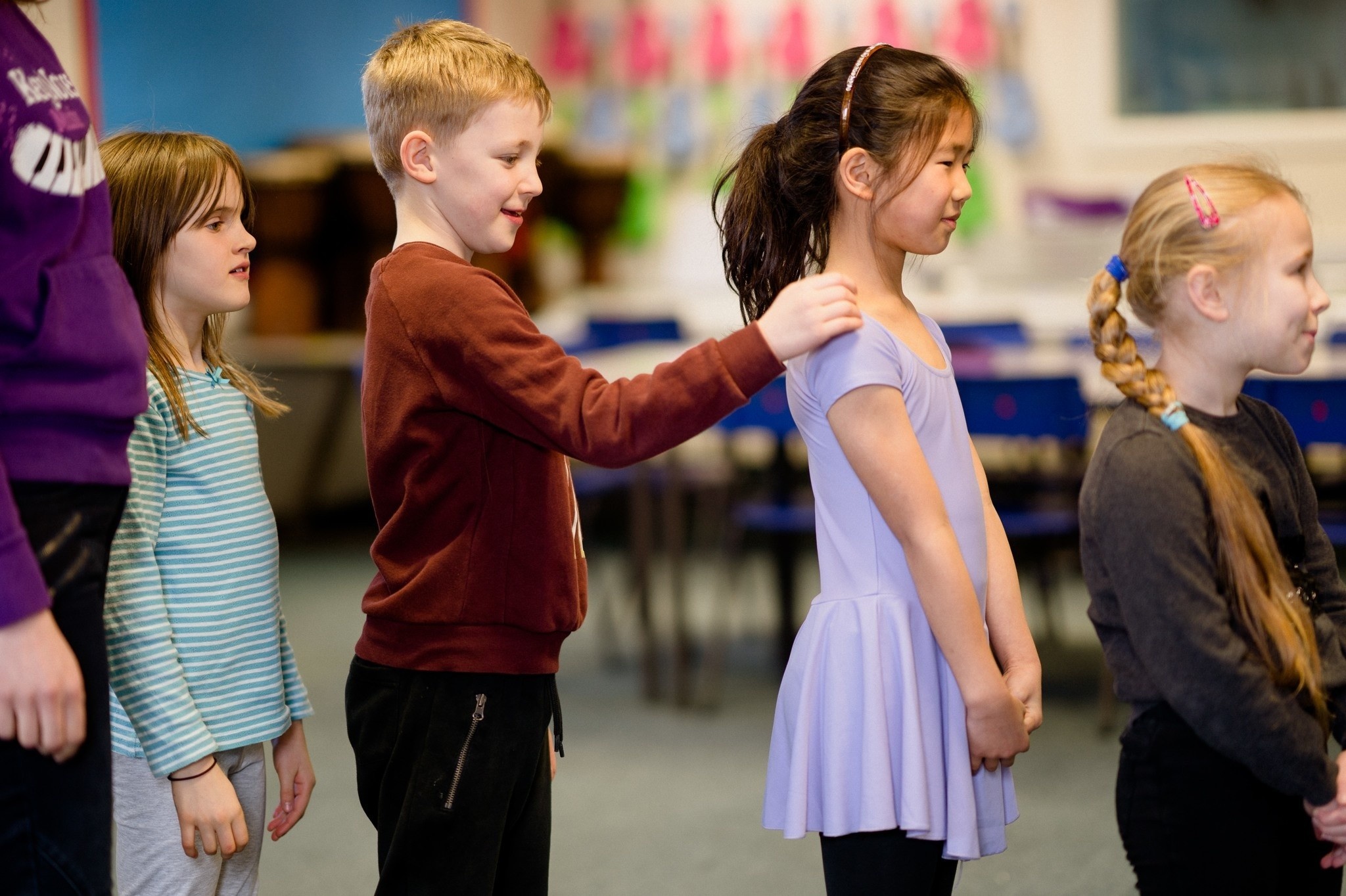
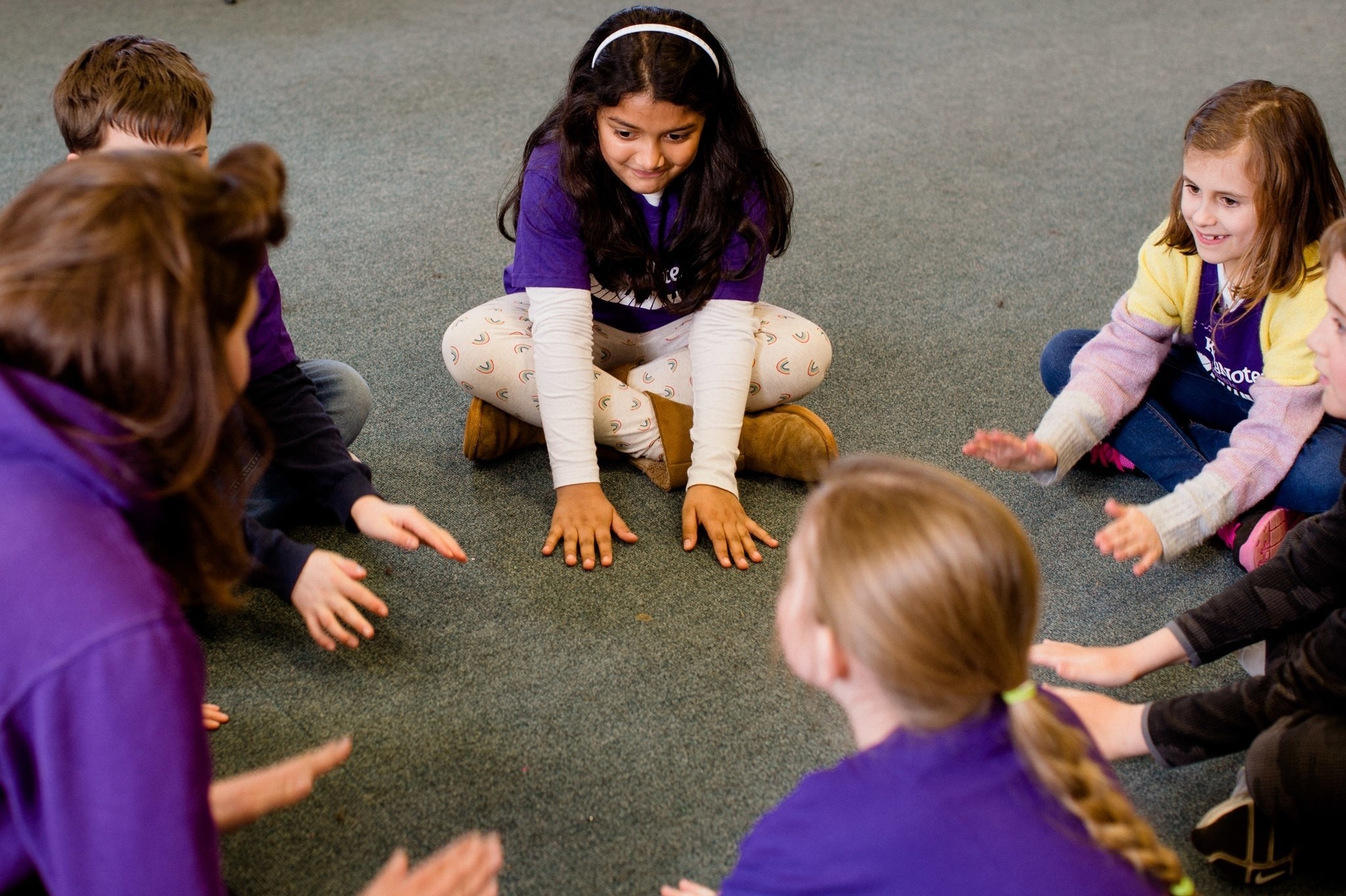
Composition as a learning tool
Our pieces build finger strength, 5-finger positions and a bubble hand posture. We have games and exercises that develop knowledge of the different sounds that can be achieved through the way that we play the piano, and these relate to the stories we are telling.
Supporting you to support your child
We are so passionate about the importance of parents' role in their child's piano-learning journey; it is key to the child's confidence, self-efficacy, and perseverance. As such, we provide an area of our site where parents can watch practice videos for each lesson. This is in addition to the parent practice sheets that teachers are able to hand out each week.
Our Workbooks
Foundations has five workbooks, each lasting approximately 16 weeks. Each workbook is based on a theme, and all learning, playing and gaming are based around it.







